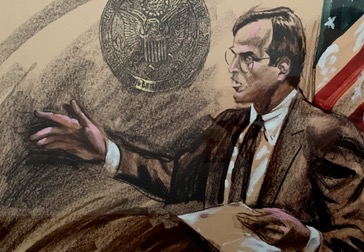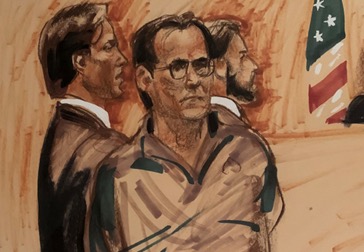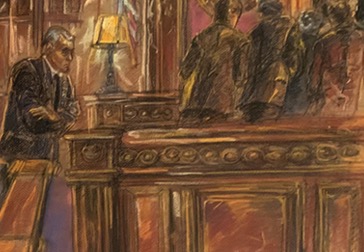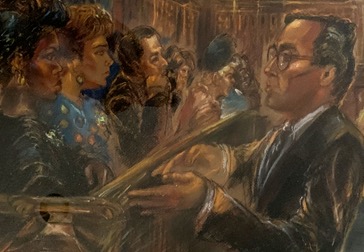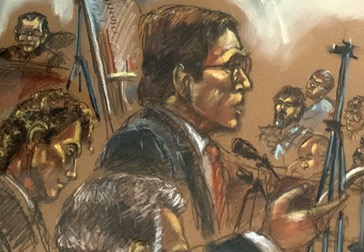Making it Harder to Prove White Collar Crimes
By PETER J. HENNING NOV. 30, 2015
One of the most potent words in politics is “reform” because everyone is in favor of making things better. Legislation introduced in the House and Senate to change what the government must prove for some white-collar crimes, especially those involving corporate executives, could end up making it harder to obtain convictions. That may not qualify as much of an improvement in the eyes of those who have complained about the lack of prosecutions in the wake of the financial crisis. At a minimum, the proposals would require courts to sort out exactly what Congress meant, potentially bogging down cases as the parties fight over what must be proven for a conviction. Representative F. James Sensenbrenner Jr., Republican of Wisconsin, introduced a bill called the Criminal Code Improvement Act of 2015 that would for the most part make modest technical corrections to the federal criminal law, such as cleaning up terminology used in a variety of statutes.
It was passed by the House Judiciary Committee, of which Mr. Sensenbrenner is a member, just two days after its introduction on a voice vote, indicating broad support from both parties. But one provision tucked in the legislation could have a significant impact on prosecuting regulatory offenses, the type often pursued against businesses and corporate managers. The law would require that if a federal criminal offense did not specifically set forth the intent needed to establish a violation, then prosecutors must show the defendant’s state of mind was “knowing.” A further requirement is that “if the offense consists of conduct that a reasonable person in the same or similar circumstances would not know, or would not have reason to believe, was unlawful, the government must prove that the defendant knew, or had reason to believe, the conduct was unlawful.” It is difficult to figure out exactly how much impact this provision would have if enacted by Congress.
Many federal crimes already include terms like “knowingly,” “willfully,” or “intentionally” so they would not be affected. But other white-collar crimes frequently charged, like mail and wire fraud, do not specify any intent level even though the courts have determined that fraud requires proving the intent to deprive someone of money or property. Would judicial interpretations supplying the requisite intent be enough to avoid the knowing requirement, or do the words of the statute alone control the application of the knowledge standard? The second part of the intent requirement could prove even more troublesome because it appears to provide a defense based on ignorance of the law, something every kindergarten teacher has admonished is never an excuse to avoid punishment. If it can be shown that reasonable people would not have reason to believe conduct is illegal, there could not be a conviction absent proof of a defendant’s actual knowledge of the violation.
Proving what is in a person’s mind is always difficult, and showing that a white collar defendant knew the law when others might not could well be impossible. Mr. Sensenbrenner’s bill is part of a larger legislative package aimed at overhauling the federal criminal law that involves a coalition of liberal Democrats and conservatives with a libertarian bent, including Koch Industries. The New York Times reported that this proposal makes life more complicated for Democrats pushing changes to the justice system, especially those who have been critical of the lack of prosecutions of corporate executives. The Justice Department opposes the bill, with a spokeswoman claiming that “countless defendants who caused harm would escape criminal liability by arguing that they did not know their conduct was illegal.” It is an interesting question whether Democrats will be willing to make it harder to pursue white-collar crime cases in exchange for changes aimed at reducing the incarceration rate for low-level drug offenses.
Senator Orrin G. Hatch, Republican of Utah, introduced a bill called the Mens Rea Reform Act of 2015 that would require proof that a defendant acted “willfully” if the statute did not already contain an intent element. That is a slippery term, which the Supreme Court in Bryan v. United States noted is “a word of many meanings whose construction is often dependent on the context in which it appears.” The legislation does take a stab at defining “willfully,” providing that it “means the person acted with knowledge that the person’s conduct was unlawful.” The problem is figuring out whether that requires showing the person had actual knowledge of the law at the time of the offense, or just knew that the conduct was generally wrongful.
For tax prosecutions, the Supreme Court in Cheek v. United States held that the government must show a defendant intended to violate “a known legal duty,” which means that ignorance of the law is an excuse. If that’s the same standard adopted under Mr. Hatch’s proposal, then proving white-collar crimes will be much more difficult when the violation involves complicated regulatory requirements. The bills are not limited to white-collar crimes, but their greatest impact will be on prosecutions for corporate misconduct if either is enacted in its current form. The most commonly prosecuted federal offenses, such as those involving illegal narcotics, guns, immigration and child pornography, would be unaffected because they already have congressionally prescribed intent levels. Moreover, even if a provision in those areas does not, it would be difficult to offer an ignorance defense when the underlying conduct is clearly wrongful. How plausible is it for a defendant to claim not knowing heroin or child pornography is illegal?
Regulatory violations, such as those involving environmental hazards, food and drug safety and government reporting requirements, are most likely to be affected by the heightened intent requirement. These are the kinds of cases in which companies and their executives could be held responsible based on their involvement indecisions that result in harm.
But if knowledge or willfulness must be proven, especially if it requires showing a defendant’s actual knowledge, then as Jennifer Taub pointed out in an Another View column, “Protecting elite offenders seems incongruous with efforts to strengthen the criminal justice system.” How do these proposals, which seem to run contrary to the public sentiment that corporate executives have not been held accountable since the financial crisis, fit with the effort to overhaul the federal criminal justice system?
The starting point for the legislation is the proposition that criminal punishment should be imposed only on those who are morally blameworthy. Determining whether someone ought to be held responsible depends at least in part on having a culpable state of mind at the time of the offense. Thus, requiring proof of at least some criminal intent seems like an unassailable proposition. The rub is figuring out what level of intent should be applied and whether ignorance of the law should be a defense. This is especially challenging for white-collar crimes in which the conduct can be difficult to distinguish from ordinary business transactions and offenders often believe they did nothing wrong, or at least nothing illegal even if it might tread close to the line.
The most difficult determination in such a case is finding enough evidence of intent, which is almost always based on circumstantial evidence, like email and other electronic communication, that give a hint about what was going through the defendant’s mind at the time. Ratcheting up that element by furnishing a defense based on ignorance of the law can limit punishment to only those clearly flouting the law. But that change could effectively put prosecutions of corporate executives largely off-limits, at least when they do not have direct involvement in the decision or transaction. It is unlikely that the rationale for the proposals is to enact the “White-Collar Crime Abatement Act of 2015.” That could be the effect, however, if Congress adopts a statutory intent requirement that provides an ignorance of the law defense. Whether that constitutes a reform or just a means to insulate corporate executives from being charged remains to be seen.
-


